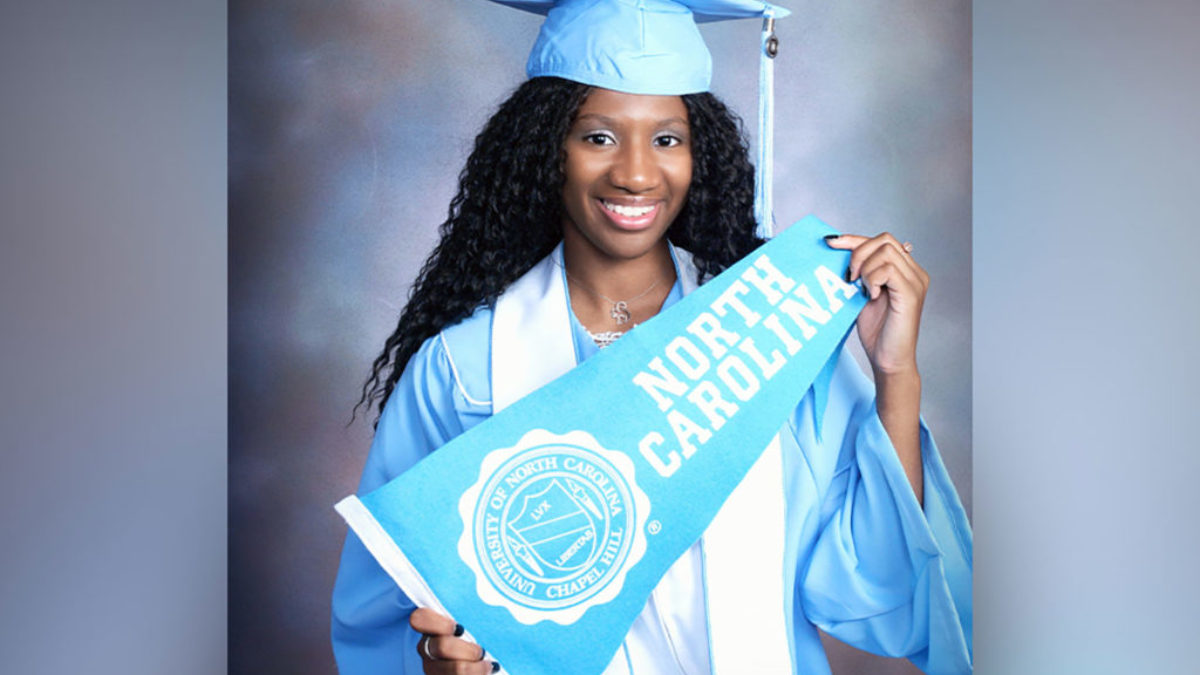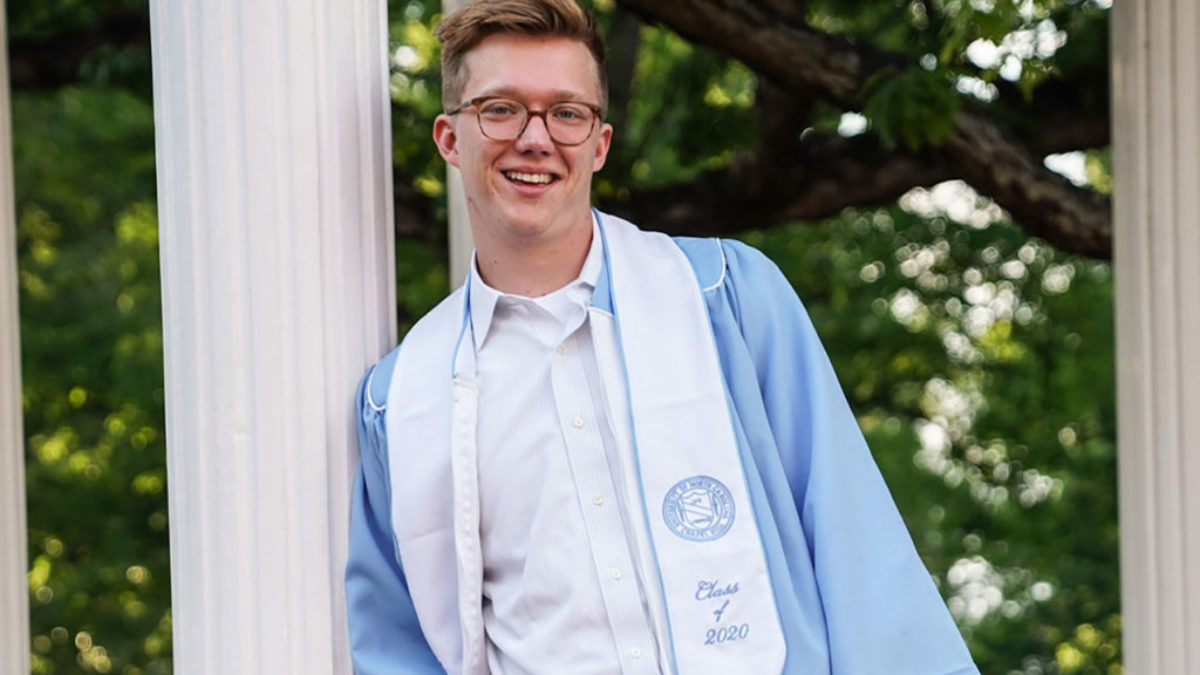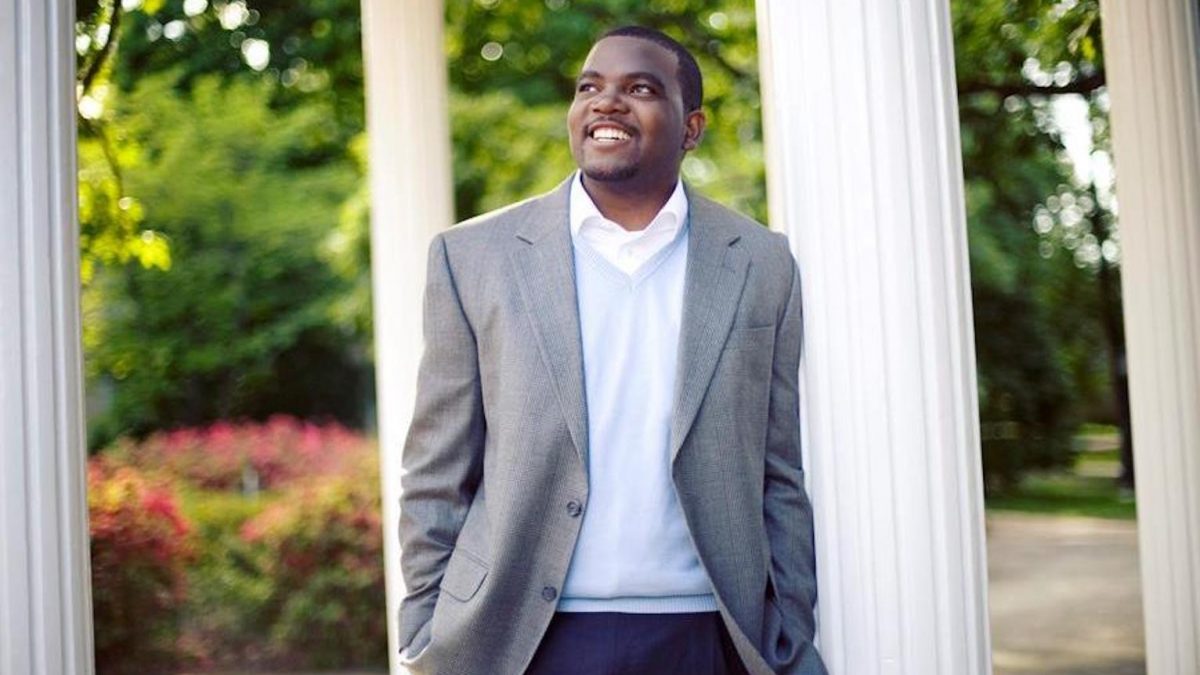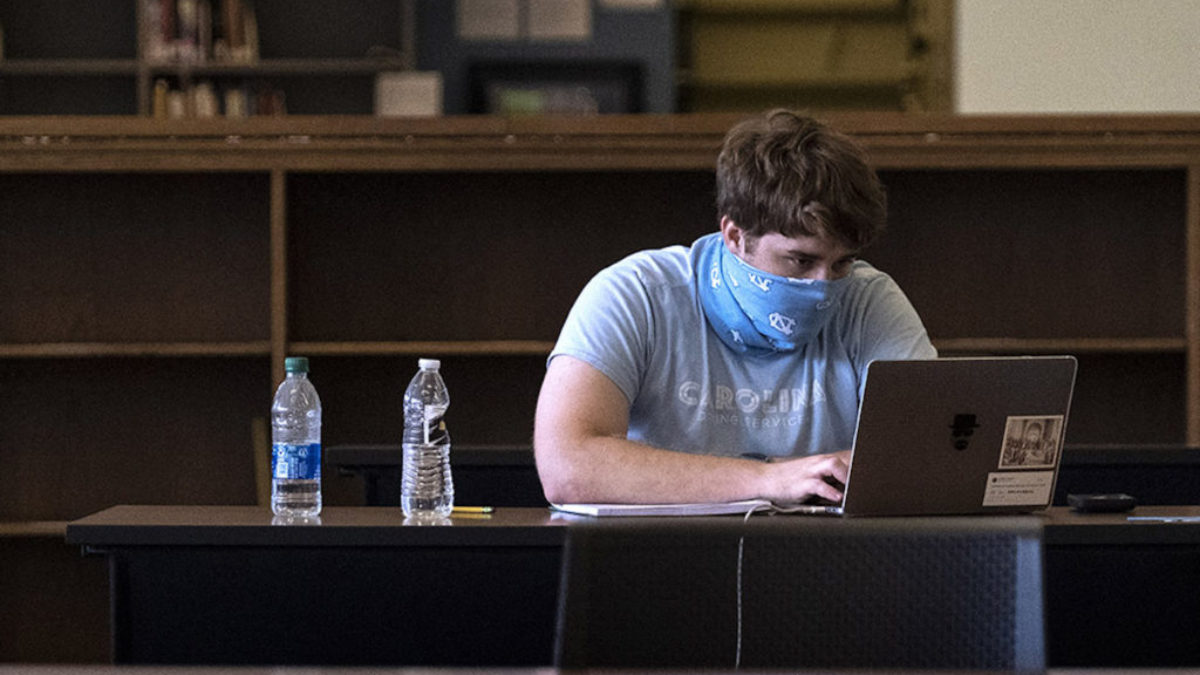Honoring a Legacy of Mentorship and Encouragement
The Renwick Minority Advisory Program promotes academic success and relationship-building among participating students.
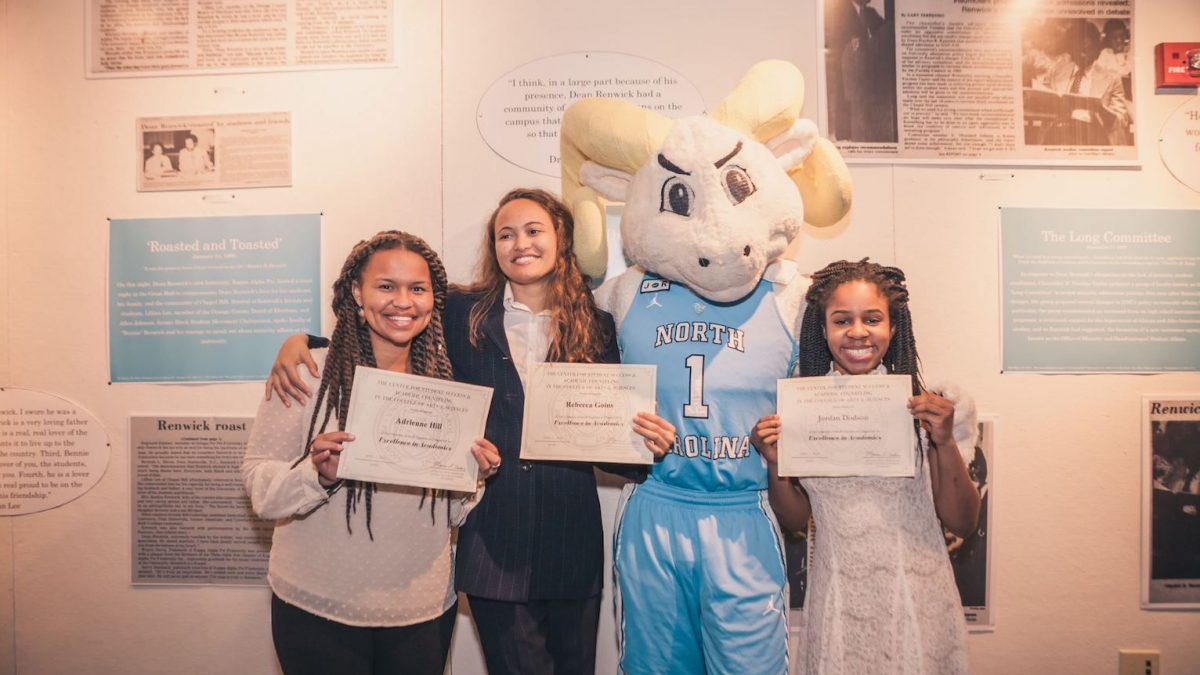
The Renwick Minority Advisory Program promotes academic success and relationship-building among participating students.
Hayden Bently “Benny” Renwick ’66 (M.Ed.) joined the staff of Carolina’s admissions office in 1969, and the University of North Carolina at Chapel Hill has had a stronger, more diverse and more successful cohort of students ever since.
When Renwick started working at Carolina, there were only about 100 African American students enrolled — and he sought to change that. Not only did Renwick want to bring a more diverse pool of applicants to Chapel Hill, he wanted them to excel. He wanted them to graduate.
With this mission in mind, Renwick instituted a minority mentoring and tutoring program on campus to promote academic success and relationship-building among participating students. The Minority Advisory Program (MAP) gives first-year students access to a vibrant community of academically successful sophomores, juniors and seniors. By providing advice and resources regarding course selections, extracurricular involvement, career development and more, mentors take a personal stake in ensuring that first-year students succeed and feel a sense of belonging at Carolina.
Renwick’s idea for MAP has served as a model for mentoring efforts in the Carolina Covenant and Carolina Student Transfer Excellence Program. The peer mentoring system has flourished — with more than 500 students participating each year, there is an approximate 1:3 mentor to mentee ratio across all three programs. Of the 400-plus mentees who participate each year, an impressive 95% would highly recommend a peer mentor to first-year and transfer students.
The results of these peer mentoring efforts encompass more than just numbers. Student mentors and mentees develop encouraging and supportive relationships.
“My mentor gave me a lot of really good advice for academics, social engagement and personal things,” said one mentee. “She was always a text away and super caring and kind. I very much enjoyed days when we would meet.”
On top of academic and personal support, mentors provide resources and guidance surrounding extracurricular and career development opportunities.
“My peer mentor introduced me to a program that ended up being one of the best parts of being at Carolina,” said another mentee. “Through [the program], we improved our relationship; I made new and lasting friendships and networked with many professionals in various fields.”
Thoughtful and intentional mentorships and relationship-building were best modeled by Renwick himself. He took a personal interest in supporting those around him through all things, big or small. For example, Renwick started mentoring alumnus Harold Woodard ’78, ’81 (M.A.) before he was officially enrolled as a student at Carolina.
Due to a mix up with another applicant, Woodard’s registration to Carolina was placed in jeopardy prior to the start of his first year. Per the advice of a family friend with ties to the University, Woodard brought his dilemma to Renwick — and in just a few minutes, it was squared away.
“I was really struck by that — he didn’t know me,” said Woodard. “I just went to his office and he welcomed me, took time to help me and brought his knowledge and experience to bear on my particular situation like it was the most important thing he had to do that day.
“Benny did more than just fix an administrative problem for me that day. He took a personal interest in me, forged a bond that I’ll always treasure and significantly influenced how I interacted with others from then on.”
Though Renwick passed away in 2009, his legacy continues through the many members of the Carolina community he influenced, such as Woodard, who took Renwick’s place in 1995 as the associate dean and director of what is now the Center for Student Success (CFSS), and Marcus Collins, the current dean of the center.
CFSS now houses not only the peer mentoring programs, but also the UNC Writing and Learning Centers, Summer Bridge, Transfer Student Support, First-Generation Student Support and Lookout Scholars. With a wide variety of options in academic coaching, resources and student support, CFSS is open to serving all students throughout their time in Chapel Hill. In fact, more than 50% of all undergraduates participate in CFSS programs and services during their time at Carolina.
In addition to these initiatives, Renwick started another tradition at Carolina: the Academic Achievement Awards. Now named the Hayden B. Renwick Awards Ceremony, this event annually celebrates the academic achievements of African American, American Indian and Latinx students who have earned a cumulative 3.2 or higher grade point average.
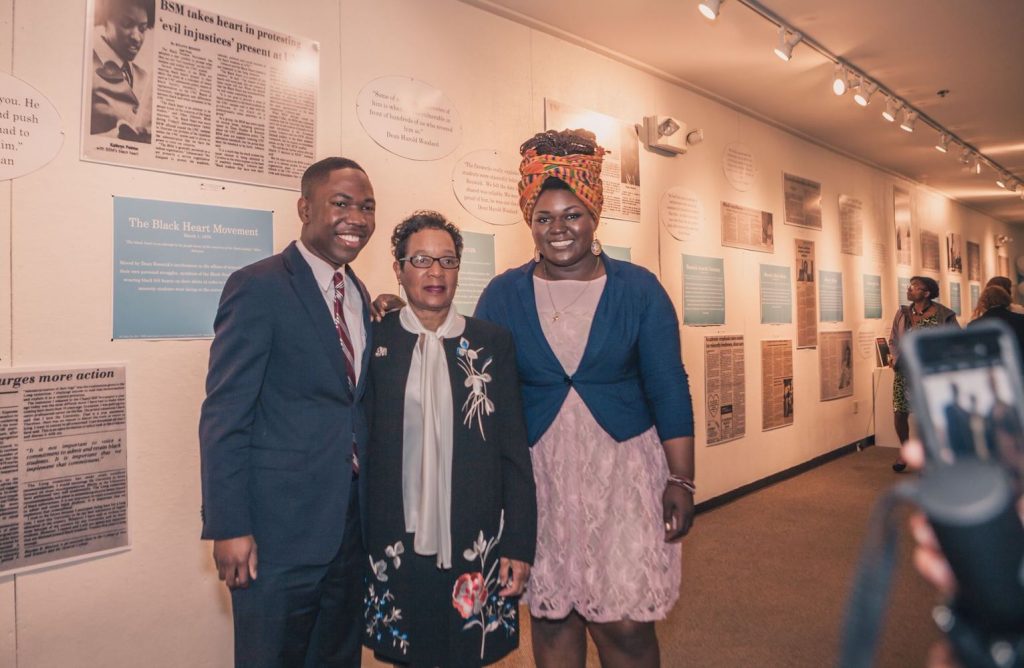
Student honorees with Mrs. Renwick
Given the limitations of the COVID-19 pandemic, both the awards ceremony and the peer mentoring programs have had to shift to a virtual setting — but their mission remains the same: to promote academic excellence, increase retention and improve the campus climate for diversity.
Beyond that, these initiatives align with and support the University’s mission to serve as a center for research, scholarship and creativity and to teach a diverse community of students to become the next generation of leaders. Deans Renwick, Woodard and Collins have all shown confidence that Carolina students will go on to do remarkable things, and part of their foundation to do so begins with their participation in these programs.
“At the heart of their mission, these types of programs provide space,” said Collins, “and that is not just physical space to hold an event, such as the awards program; it is space to be seen and heard.
“By providing space you are saying, we see you; your diversity matters; we will strive to bring equity; and by offering various programs we seek to increase inclusion and hear you. Providing a space that is uniquely yours is crucial to the mission of our University, which creates a more inclusive world in the long run.”
These programs, and the meaningful space and support they provide to students, are made possible by an endowment that honors Renwick’s legacy. An investment in this endowment is an investment in maintaining support for the intelligent, talented and diverse students at Carolina who will work to solve the grand challenges of our time.
As Woodard said, no one could ever duplicate Renwick’s commitment to Carolina students. But by supporting and honoring his legacyOpens in new window, we can aspire to come close.
